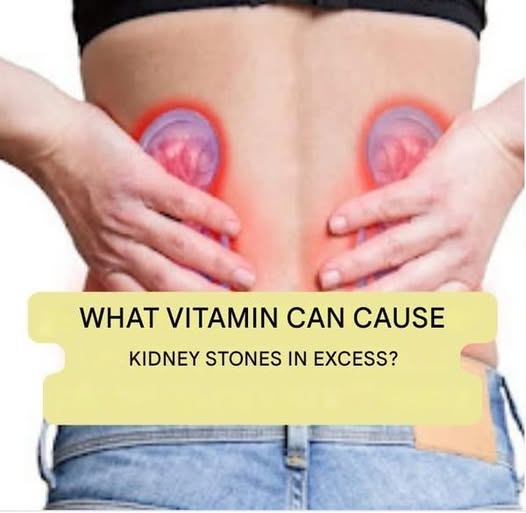
Kidney stones are painful little deposits in the kidneys that no one wants. Interestingly, over – consumption of one key vitamin can contribute to their formation. Let’s find out which vitamin it is and how to keep a healthy balance.
Vitamin D, the “sunshine vitamin,” is crucial. Our bodies make it when exposed to sunlight. It aids calcium absorption for strong bones, supports the immune system, cuts chronic disease risk, and boosts overall well – being.
However, too much vitamin D can cause health problems, including a higher risk of kidney stones.
Kidney stones (renal lithiasis) are hard kidney deposits. The most common are calcium oxalate stones, where vitamin D can be an issue.
Excessive vitamin D intake raises blood calcium levels. The kidneys excrete the extra calcium in urine. Over time, this can form calcium oxalate crystals, the main part of most kidney stones. This increases the risk, especially for those predisposed.
The daily recommended vitamin D for most adults is 600 – 800 IU. Taking over 4,000 IU daily can lead to hypercalcemia (too much blood calcium), a major kidney – stone risk factor.
Vitamin D toxicity is rare, usually from over – supplementation, not sunlight or diet. So, knowing your body’s needs and avoiding over – supplementation is key.
Balancing vitamin D levels is vital to avoid kidney – stone problems. Here are some tips:
- Consult a doctor or nutritionist before taking vitamin D supplements. They can suggest the right dosage for you.
- Drink enough water. It dilutes calcium in urine, reducing stone risk. Aim for 8 – 10 glasses a day.
- Don’t over – consume calcium, whether from supplements or food. Stick to the recommended intake.
- Avoid high – dose vitamin D supplements without a doctor’s advice. Check labels for safe limits.
Recognize early symptoms of too much vitamin D: nausea, vomiting, frequent urination, fatigue, bone pain, confusion. If you have any, see a doctor right away.
Vitamin D is essential for health, but balance is key. Too little weakens bones and the immune system; too much raises kidney – stone and other health risks. Achieving balance means managing supplements and having a healthy lifestyle.
Moderation is crucial with vitamin D. Over – doing it can increase blood calcium and kidney – stone risk. To avoid this, consult a healthcare pro, stay hydrated, and watch your calcium intake.
Finding balance is at the heart of good health. A smart approach to vitamin D intake helps you enjoy its benefits without kidney – stone or other worries. A bit of “sunshine” in all senses goes a long way!